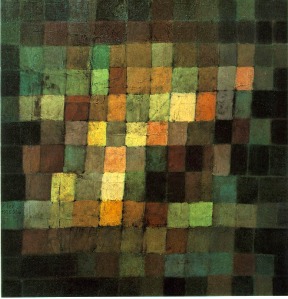What if our classical music is really much more varied, confusing, and more disorderly than we make it sound in playing today?
 What if the wordless instrumental music of Mozart and Beethoven encodes and encloses so many references to the specifics and generalities of living Italian comic opera that we’re in the dark without it?
What if the wordless instrumental music of Mozart and Beethoven encodes and encloses so many references to the specifics and generalities of living Italian comic opera that we’re in the dark without it?
What if in the great regularizing of the bow, the beat, subdivisions, fingerings, registers high and low, we actually flattened out much that makes old music communicate? Gives it friction and traction?
What if we don’t really want to change the way we cook these dishes today? What if we’re content with our boredom?

Excellent post and I doubt if there is an easy answer. Cultural references in classical music may well be lost as they are in other art forms. There was a sixties film about gay men, who worked on merchant ships sailing out of England, shown on television recently. The reviewer said that it was rather twee and missed the point. Not it did not! The film was made five years before homosexuality became legal in Britain and most people were really offended by the idea same sex relationships. It was a real risk to show homosexuality in a working class setting where it was an entirely a taboo subject. The reviewer did not know his cultural history.
Although I have not seen it, apparently there is an annotated edition of Alice In Wonderland, which explains all the cultural references that Victorians would have understood, but a couple of generations later had been lost. Even the Liverpool poets, which I read at school in the sixties, are full of cultural references that are probably lost today. This gets even more complicated when we, in the U.K., are listening to American music from a different generation. I have always wanted to know what these lines from Blue Yodel no. 9 mean:
“Now, you can find my name
On the tail of my shirt”
Does it mean he has expensive hand-made shirts; does it mean he has been in prison; or does it mean you can kiss my a–?
We are also hearing the dramatic key changes of Baroque, and especially Classical music, after Richard Strauss, Stockhausen and hard bop, so we are certainly not responding to the effect the same as people would have done at the time these masterpieces were written.
Even when we become familiar with the material referenced, can we feel the reference beyond any sort of intellectual exercise? Is the scaffolding upon which the piece was structured all that is left for modern day listeners?
If we could intuit these references today, I have the feeling the experience would be akin to seeing Greek statues with their original paint jobs.
“Oh, is THAT how the composer intended it?”
“Does it really matter?”